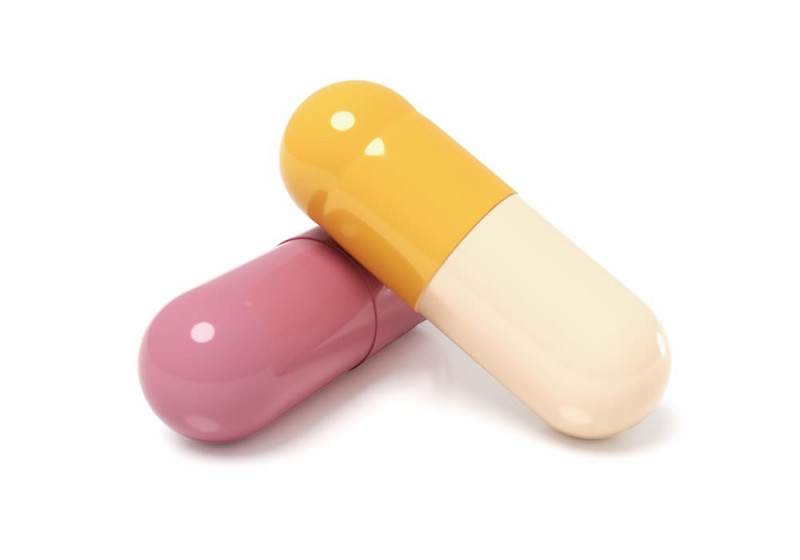Are Diltiazem ER Tablets And Capsules Interchangable?
In our latest question and answer, the pharmacist discusses whether or not diltiazem ER capsules and tablets are interchangeable.

Question
What is the difference, if any, between Diltiazem Hcl ER tablets and Diltiazem Hcl ER capsules? I have always taken the tablets, but my mail order service recently sent me the capsules. I take this medication for high blood pressure once a day. Is it safe for me to take the capsules in place of the tablets?

Answered by Dr. Brian Staiger, PharmD
Medical Content Reviewed By HelloPharmacist
Staff
Last updated Jul 06, 2025
Hello and thank you for reaching out to us!
I'm not sure what state you live in or what the applicable laws are regarding drug substitution, but the straightforward answer here is that the FDA does not consider diltiazem ER tablets and diltiazem ER capsules interchangeable.
The FDA has a well-defined process and publically accessible reference (the 'Orange Book') for how they determine 'therapeutic equivalence' between two drugs, which I describe in the next section below, and diltiazem ER tablets and capsules are not therapeutically equivalent according to the FDA.
Having said the above, there likely isn't too much of a clinical difference between diltiazem ER tablets and ER capsules (assuming they are both the 24-hour variety and the same strength). It is probably safe to switch between them if you had to, as I would imagine you'll experience a similar effect from both, but the point remains that they aren't considered interchangeable.
FDA 'Orange Book'
There are many different diltiazem products on the market, and even if two are the same strength, and are extended-release, that does not mean they are interchangeable with one another and this can be verified via the FDA Orange Book.
The Orange Book is an FDA-published reference that is officially titled 'Approved Drug Products with Therapeutic Equivalence Evaluations', and it details what drugs are considered 'therapeutically equivalent' to one another.
Now, 'therapeutic equivalence' is determined when two drugs are 'bioequivalent' to one another, meaning that they have:
- The same rate of absorption
- The same extent of absorption
Therefore, if you compared two drugs that FDA has considered bioequivalent, you would expect them to have the same therapeutic effect since they are absorbed the same way. The FDA reviews data submitted by pharmaceutical companies in order to determine therapeutic equivalence.
As an example here, let's look at the cholesterol drug, Lipitor.
There are multiple generic drugs available, made by a variety of manufacturers, for the brand name drug Lipitor. Atorvastatin, the generic for Lipitor, is manufactured by Sun Pharma, Caraco, Teva, etc...
These companies submit data to the FDA to show that their drug product has the same (within a margin of error) rate and extent of absorption as Lipitor. If the data shows this, the FDA can designate the drugs as therapeutically equivalent to the brand-name counterpart.
Most states have laws that legally allow the generic substitution of brand-name drugs as a cost-saving measure as long as the two products have the same therapeutic equivalence rating.
The Orange Book uses certain codes to designate drugs that are considered therapeutically equivalent to one another and the drugs mentioned in your question, diltiazem tablets and capsules, have different codes.
Therapeutic Equivalence
The most common application of the 'Orange Book' is to determine what drugs can be legally substituted for one another, and this most often comes up in the case of generic substitution.
The 'Orange Book' will designate generic drugs that are equivalent to their brand-name counterpart and assign the appropriate 'therapeutic equivalence' code (or 'TE Code')
As it concerns diltiazem products, I mentioned there are several on the market, including:
- diltiazem 12 hour extended-release capsules
- diltiazem 24 hour extended-release capsules [brand names Cardizem CD, Tiazac, Cartia XT, Taztia XT]
- diltiazem immediate-release tablets
- diltiazem 24 hour extended-release tablets [brand name Tiazac XC, Matzim LA, Cardizem LA]
If we compare how the Orange Book classifies capsules versus tablets, they do not have the same designation.
For example, Cardizem CD capsules have an 'AB3' rating, while Cardizem LA tablets have an 'AB' rating.

Since these two products have different ratings, they are not considered therapeutically equivalent to one another.
Final Words
So, I've answered the main question here in regard to whether or not diltiazem ER tablets and capsules are technically interchangeable, and as discussed, they are not.
This likely has very little real-world, clinical significance, but the point remains, they are not interchangeable and your pharmacy shouldn't be switching you between capsules and tablets unless your doctor wrote your prescription for one or the other.
Thanks again for your question and be sure to reach out again with further questions!
-
 Dr. Brian Staiger, PharmD
Dr. Brian Staiger, PharmD
- 5578 views


